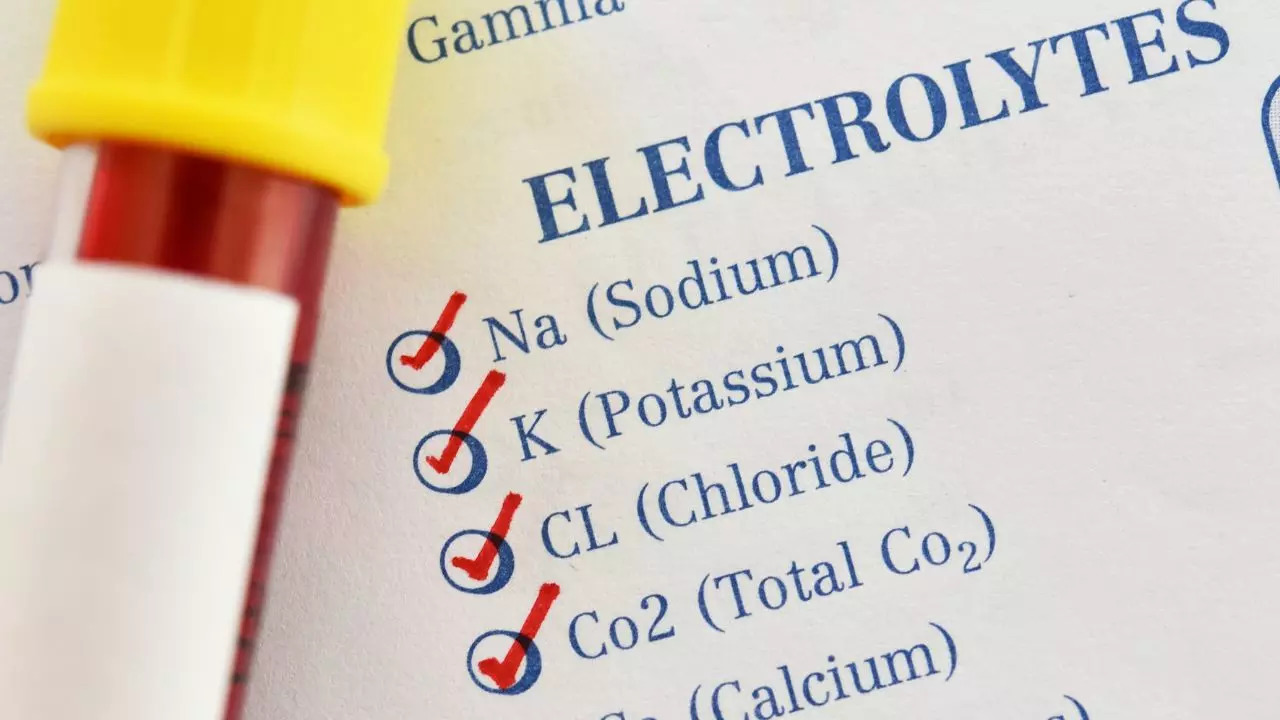Contents
What happens to your body when your electrolytes are low?Here’s a look at what happens to your body when your electrolytes are low.muscle cramps and weaknessIrregular heartbeatDehydration and fluid imbalanceDizziness and light-headednessnausea and vomitingconfusion and cognitive impairmentFatigue and lethargyBone weakness
What happens to your body when your electrolytes are low?
Electrolytes play a vital role in maintaining many physiological functions in the body. Electrolytes help regulate fluid balance, aid nerve function, and ensure muscle contraction, including the heart. However, at times, electrolyte levels become low. Read on to know what happens when your electrolyte levels are low.

Learn what happens to your body when your electrolytes are low
Electrolytes are important minerals in the body that carry an electrical charge and play a vital role in maintaining many physiological functions in the body. These electrolytes include sodium, potassium, calcium, magnesium, chloride, bicarbonate, and phosphate. Electrolytes help regulate fluid balance, help with nerve function, and ensure muscle contraction, including the heart.
ElectrolyteElectrolytes are also important for maintaining the body’s acid-base balance which is vital for cellular function. An imbalance in electrolytes, whether caused by dehydration, illness or poor diet, can cause symptoms such as muscle cramps, fatigue, irregular heartbeat and even serious health problems if it is not corrected. Proper hydration and a balanced diet are important for maintaining electrolyte levels.
Here’s a look at what happens to your body when your electrolytes are low.
muscle cramps and weakness
Low electrolyte levels, especially calcium, potassium and magnesium, can cause muscle cramps and weakness. These minerals are important for muscle contractions and a deficiency affects this process, leading to involuntary muscle spasms, cramps and overall muscle fatigue.
Irregular heartbeat
Electrolytes such as potassium, calcium and magnesium play a key role in regulating the electrical impulses that control the heart’s rhythm. When levels of these electrolytes are low, it can cause arrhythmias, or irregular heartbeats, which can lead to palpitations, chest discomfort and, in severe cases, an increased risk of cardiac complications.
Dehydration and fluid imbalance
Sodium is an important electrolyte for maintaining fluid balance in the body. Low sodium levels can cause dehydration as the body struggles to regulate fluid levels inside and outside cells. This can result in symptoms such as dry mouth, excessive thirst, and decreased urine output.
Dizziness and light-headedness
Electrolyte imbalances, particularly those involving sodium and potassium, can affect blood pressure levels. Low levels of these electrolytes can cause a drop in blood pressure, which can lead to dizziness, lightheadedness and, in some cases, fainting, especially when standing up suddenly.
nausea and vomiting
An imbalance in electrolytes can affect the normal functioning of the digestive system. This can lead to symptoms such as nausea, vomiting, and even diarrhea, which further worsens electrolyte deficiencies and creates a cycle of imbalance.
confusion and cognitive impairment
Electrolytes are important for nerve function and signal transmission in the brain. Low levels of sodium can cause confusion, irritability, and difficulty concentrating. Severe electrolyte imbalances can cause more serious neurological symptoms, including seizures and loss of consciousness.
Fatigue and lethargy
Electrolytes are vital for the production of cellular energy and overall metabolic function. When electrolyte levels are low, cells cannot function efficiently, leading to extreme fatigue, lethargy, and a general lack of energy.
Bone weakness
Calcium is an important electrolyte for bone health. Low calcium levels can lead to reduced bone density and an increased risk of fractures. Over time, persistently low calcium levels can lead to osteopenia or osteoporosis which makes bones more fragile and susceptible to injury.
Get the latest news on Times Now along with the latest updates and top headlines from health and around the world.


